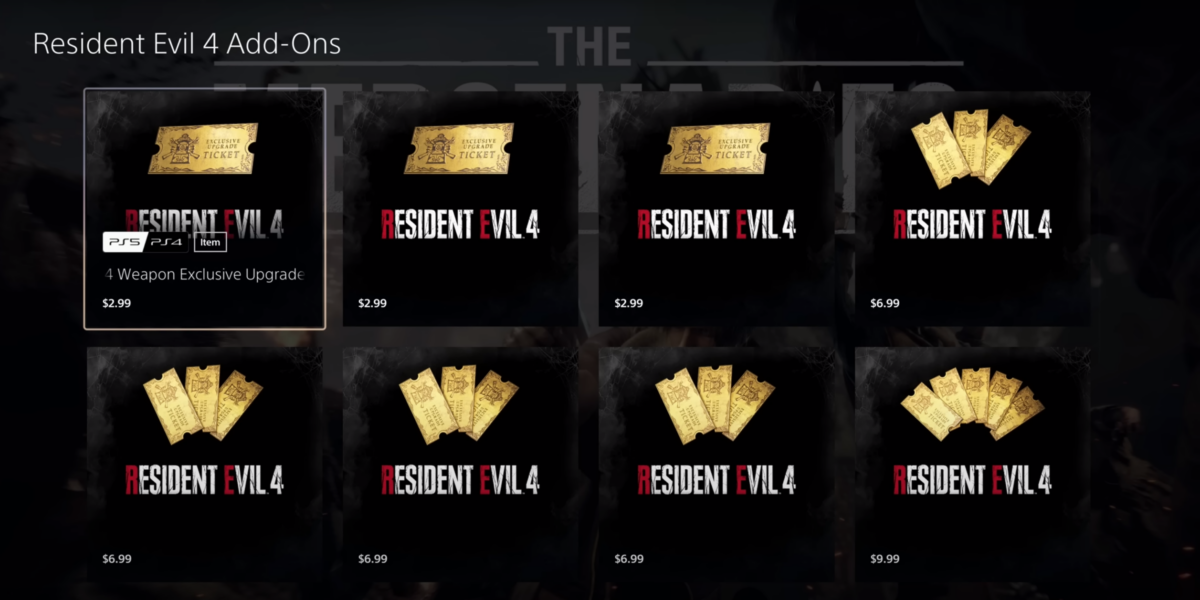
Resident Evil 4 Remake dropped on 24 March, 2023, to rapturous acclaim from pretty much everyone and anyone. Players, critics (including this very website), fans, your weird cousin who never leaves his flat; everyone was raving about it, sending it rocketing up Metacritic’s Best Games of 2023 list, where it currently sits in joint-second position alongside Tetris Effect Connected, and behind joint-leaders The Witcher 3: Wild Hunt – Complete Edition and Metroid Prime Remastered (funny how they’re almost all remakes, isn’t it?). On 7 April – two weeks later, long after most reviews had gone live and on a UK and US public holiday, no less – Capcom quietly added a handful of new items to the game’s various digital storefronts. Described as “Weapon Exclusive Upgrade Tickets”, they were slotted in alongside RE4R's other microtransactions, which – at the time – were chiefly alternate costumes for Leon and Ashley. There are six in all, as well as five additional upgrade ticket bundles of various configurations, too. For £2.49, you get “access to a weapon’s exclusive upgrade at any time, regardless of the weapon’s level”, ultimately exchanging your real-life money for a fairly hefty real-life time saver. That’s what they’re called these days, isn’t it? “Time savers”. Just as we became accustomed to “pre-order bonuses” and “cosmetic items”, “time savers” slowly tiptoed into the back of the room alongside them, becoming more and more widespread. It’s like the moment we became resigned to the fact that DLC’s a thing – we’re just giving you extra content, silly! – and then the microtransaction epidemic – there’s no in-game benefit! They’re just cosmetic! – time savers arrived and asked cosmetic gun skins to hold their beer. Yes, I know, “time savers” are not anywhere in the same league as lootboxes. Unlike lootboxes – those insidious randomised things that are increasingly being banned across the world – there’s a tangible benefit for picking up a time saver microtransaction. Just how tangible it is – and how much someone is willing to pay for it – will vary from person to person, I guess. And in defence of Capcom – and that may well be the only time I type those words today, by the way – it’s by no means the first, and absolutely not the last, publisher to sneak in additional paid content after the review dust has settled. It’s really sly, though, isn’t it? That’s the bit that makes me uneasy. We all know that gaming is as tribal as it is cultural; you may not agree with it, but there’s no denying that we support certain studios and publishers because they share our ideals and beliefs. Maybe they publicly denounce crunch culture, or are committed to telling inclusive stories, but those shared values influence our support for a studio every bit as much as their ability to forge our favourite make-believe worlds.

Credit: Capcom.
Vikki Blake has a column every week here at whynow Gaming. You can read her previous dispatch here.






